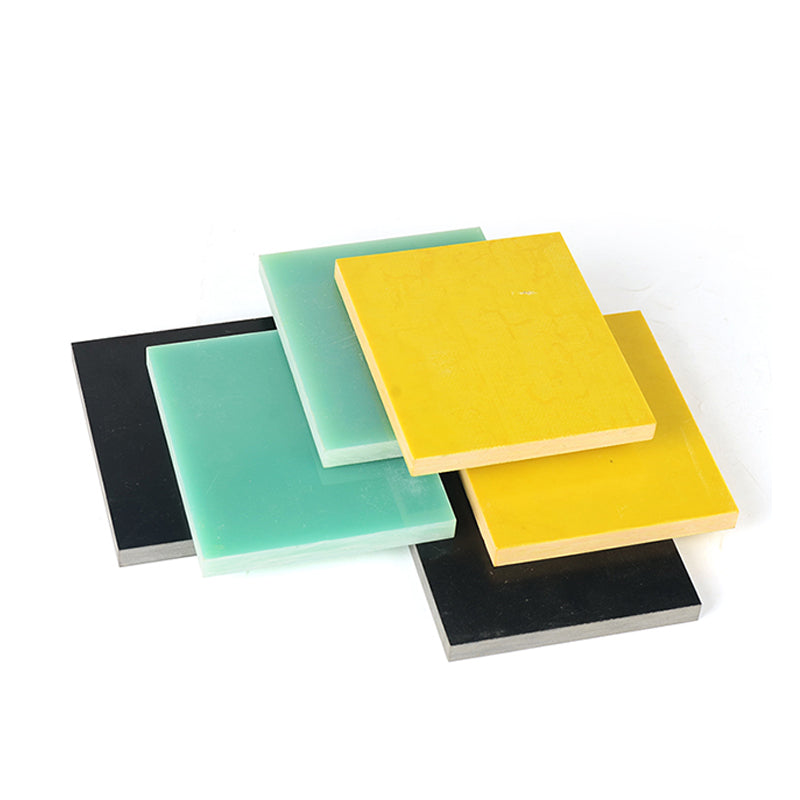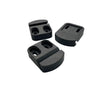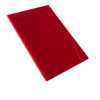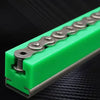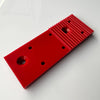Why Bakelite is the Perfect Material for Durable Electrical Components
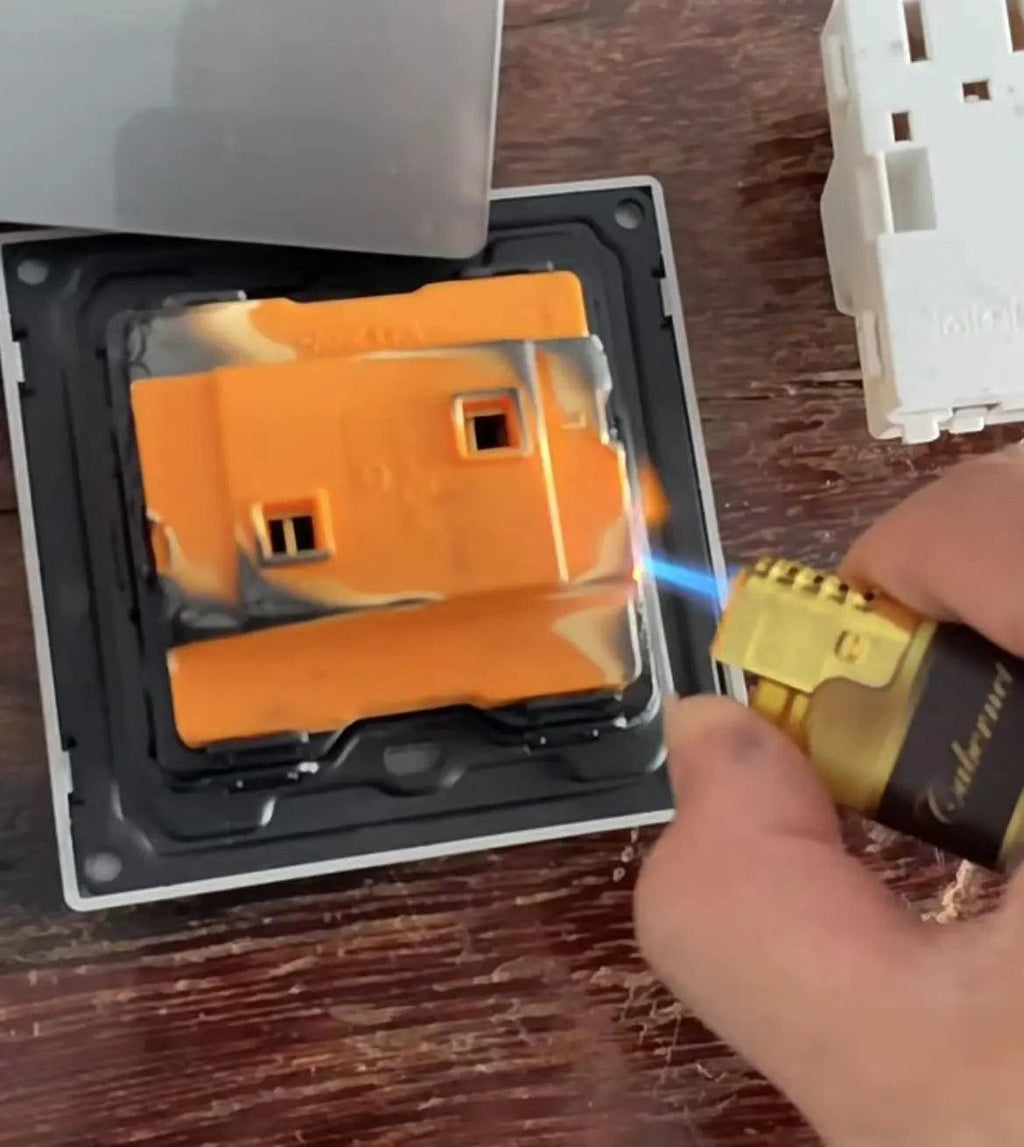
Discover why Bakelite stands out as the ideal choice for durable electrical components. This blog post delves into the unique properties of Bakelite that make it an exceptional electrical insulator, including its high dielectric strength and thermal stability. Explore its critical roles in modern electronics, from printed circuit boards (PCBs) to electrical connectors and motor components. Learn about its applications in the automotive industry, enhancing performance and safety in brake pads, clutch plates, and dashboard panels.

Understand the detailed manufacturing process of Bakelite sheets, from the creation of phenol formaldehyde resin to lamination and curing, ensuring robustness and versatility. Discover the benefits of using Bakelite sheets in electrical applications, such as high strength, low moisture absorption, and chemical resistance, contributing to the longevity and reliability of electrical components. Compare Bakelite with other insulating materials like epoxy resin and PVC, highlighting its superior properties.
Finally, get practical tips on the maintenance and care for Bakelite components to ensure their longevity, including cleaning advice and protection from high temperatures and mechanical stress. This comprehensive guide will help you understand why Bakelite remains a top choice in various industries for creating reliable and durable electrical components.
The Unique Properties of Bakelite for Electrical Insulation
High Dielectric Strength
Bakelite is renowned for its high dielectric strength, making it an exceptional material for electrical insulation. This property allows Bakelite to effectively prevent electrical currents from passing through, ensuring the safety and functionality of electrical components. Dielectric strength refers to a material's ability to withstand high voltages without breaking down. In applications such as switches, sockets, and transformers, the dielectric strength of Bakelite ensures that these components can handle high electrical loads without the risk of short circuits or electrical failures. This characteristic is crucial in preventing electrical hazards and ensuring the longevity of electrical systems.
Thermal Stability
Another significant advantage of Bakelite is its excellent thermal stability. Bakelite can withstand high temperatures without degrading, making it ideal for electrical components that operate under thermal stress. In electrical systems, components often generate heat, and materials used in these systems must maintain their integrity under such conditions. Bakelite’s ability to remain stable at high temperatures makes it suitable for use in motor components and circuit breakers, where thermal resistance is essential. The thermal stability of Bakelite not only enhances the performance of these components but also contributes to the overall safety of electrical systems.
Application in Switches and Sockets
Switches and sockets are critical components in any electrical system, requiring materials that can provide reliable insulation and withstand regular use. Bakelite's high dielectric strength and thermal stability make it a preferred choice for these applications. In switches, Bakelite ensures that the electrical connections are insulated, preventing accidental contact and reducing the risk of electrical shocks. Similarly, in sockets, Bakelite's properties ensure that the electrical contacts are insulated from the outer housing, enhancing safety and reliability. Additionally, Bakelite's durability ensures that these components can withstand frequent operation without significant wear and tear.
Use in Transformers
Transformers play a vital role in electrical systems by stepping up or stepping down voltage levels. The insulation materials used in transformers must be capable of handling high voltages and temperatures. Bakelite, with its high dielectric strength and thermal stability, is an excellent material for this purpose. It ensures that the transformer coils are effectively insulated, preventing electrical leaks and enhancing the efficiency of the transformer. The use of Bakelite in transformers contributes to their reliable performance and longevity, ensuring consistent power delivery in electrical systems.
Durability and Longevity
The durability of Bakelite is another reason why it is highly valued in electrical insulation applications. Bakelite is resistant to wear and tear, ensuring that electrical components made from this material have a long operational life. This durability reduces the need for frequent replacements and maintenance, offering cost-effective solutions for electrical systems. Additionally, Bakelite's resistance to chemicals and moisture further enhances its longevity, making it suitable for use in various environmental conditions.
Incorporating Bakelite into electrical components ensures not only the safety and reliability of these systems but also their efficiency and cost-effectiveness. The unique properties of Bakelite, including its high dielectric strength, thermal stability, and durability, make it an indispensable material in the electrical and electronics industry.

Applications of Bakelite in Modern Electronics
Printed Circuit Boards (PCBs)
Bakelite plays a crucial role in the manufacturing of printed circuit boards (PCBs), which are foundational components in almost all electronic devices. PCBs require a material that offers excellent electrical insulation, mechanical stability, and resistance to heat. Bakelite's high dielectric strength and thermal stability make it an ideal choice for PCBs. The rigid structure of Bakelite ensures that the circuit paths are well insulated from each other, preventing short circuits and enhancing the overall reliability of the electronic device. Additionally, Bakelite can withstand the soldering process, where components are attached to the board at high temperatures, without losing its structural integrity.
Electrical Connectors
Electrical connectors are another vital application of Bakelite in modern electronics. These connectors need to maintain electrical insulation while providing robust structural support to the connecting wires and components. Bakelite's durability and resistance to electrical currents make it suitable for connectors used in various electronic devices. By ensuring stable and reliable connections, Bakelite helps in maintaining the efficiency and longevity of electronic systems. Moreover, Bakelite’s resistance to moisture and chemicals adds an extra layer of reliability, making it an excellent material for connectors used in harsh environmental conditions.
Motor Components
Bakelite is extensively used in the production of motor components, which are essential for the operation of electric motors found in numerous electronic devices. Components such as commutator segments, brush holders, and insulating plates are often made from Bakelite. The material's thermal stability ensures that these components can withstand the heat generated during motor operation, preventing deformation and maintaining performance. Additionally, Bakelite's mechanical strength provides the necessary durability to handle the stresses involved in motor operations, ensuring that the motors run efficiently and reliably over time.
Enhancing Reliability and Efficiency
The use of Bakelite in these applications significantly enhances the reliability and efficiency of electronic devices. By providing superior electrical insulation, Bakelite minimizes the risk of short circuits and electrical failures. Its thermal stability ensures that components can operate under high temperatures without degrading, which is crucial for maintaining the performance and safety of electronic systems. Furthermore, Bakelite’s durability reduces the need for frequent maintenance and replacements, offering a cost-effective solution for manufacturers and end-users alike.
Versatility in Electronics
The versatility of Bakelite extends beyond these primary applications. It is also used in the production of transformer housings, terminal blocks, and various other insulating parts within electronic devices. Its ability to be molded into different shapes and sizes allows for customized solutions tailored to specific electronic applications. This adaptability makes Bakelite a preferred material for a wide range of electronic components, contributing to the advancement and reliability of modern electronic technology.
By incorporating Bakelite into the manufacturing of PCBs, electrical connectors, and motor components, the electronics industry benefits from its unique properties, ensuring that devices are safe, reliable, and efficient. The continued use of Bakelite in these critical applications underscores its importance as a foundational material in modern electronics.

Bakelite in the Automotive Industry: Enhancing Performance and Safety
Heat Resistance in Brake Pads
Bakelite is highly valued in the automotive industry for its exceptional heat resistance, which is crucial for components like brake pads. During braking, significant heat is generated due to friction, and materials used in brake pads must withstand these high temperatures without degrading. Bakelite’s ability to maintain its structural integrity under intense heat ensures that brake pads remain effective and safe over prolonged use. This thermal stability not only enhances the performance of brake pads but also contributes to overall vehicle safety by providing consistent braking power even under extreme conditions.
Mechanical Strength in Clutch Plates
The mechanical strength of Bakelite makes it an ideal material for clutch plates in vehicles. Clutch plates are subjected to frequent friction and high pressures, necessitating a material that can endure these stresses without wearing out quickly. Bakelite’s robust nature ensures that clutch plates can handle the mechanical demands of engaging and disengaging the engine’s power to the transmission. This durability translates to a longer lifespan for clutch plates, reducing the need for frequent replacements and maintenance, thus providing cost savings for vehicle owners and improving the reliability of the vehicle's drivetrain.
Durability in Dashboard Panels
Dashboard panels in vehicles benefit significantly from Bakelite’s durability and aesthetic versatility. Bakelite can be molded into various shapes and designs, allowing for creative and functional dashboard elements. Its resistance to heat and chemicals ensures that dashboard panels can withstand the harsh conditions inside a vehicle, such as exposure to sunlight and cleaning agents. This durability ensures that the panels maintain their appearance and functionality over time, contributing to the overall quality and longevity of the vehicle's interior.
Enhancing Safety in Electrical Components
Bakelite also plays a critical role in enhancing the safety of electrical components within vehicles. Its excellent electrical insulation properties prevent short circuits and electrical fires, which are essential for components like ignition systems, voltage regulators, and distributor caps. By providing reliable insulation, Bakelite ensures the safe operation of these critical electrical systems, thereby protecting both the vehicle and its occupants from potential electrical hazards.
Contribution to Lightweight Automotive Design
The use of Bakelite in automotive components contributes to the trend of lightweight automotive design. Components like brake pads, clutch plates, and dashboard panels made from Bakelite are not only durable but also relatively lightweight compared to traditional materials. This reduction in weight can improve fuel efficiency and vehicle performance, aligning with the industry’s push towards more energy-efficient and environmentally friendly vehicles.
Versatility in Other Automotive Applications
Beyond the primary applications, Bakelite is also used in a variety of other automotive components, such as gears, bearings, and insulating parts. Its versatility allows it to meet the diverse needs of the automotive industry, providing solutions that enhance the performance, safety, and longevity of various vehicle components. This widespread use underscores Bakelite's importance as a material that meets the rigorous demands of modern automotive engineering.
By leveraging Bakelite’s unique properties, the automotive industry can enhance the performance and safety of vehicles, ensuring they meet the high standards expected by consumers and regulatory bodies. The material’s heat resistance, mechanical strength, durability, and versatility make it indispensable in the production of reliable and high-performing automotive components.
The Manufacturing Process of Bakelite Sheets
Creation of Phenol Formaldehyde Resin
The manufacturing process of Bakelite sheets begins with the creation of phenol formaldehyde resin, a thermosetting polymer. This resin is synthesized through a chemical reaction between phenol and formaldehyde under controlled conditions of heat and pressure. Phenol and formaldehyde are organic compounds that react to form a network of interconnected molecules, resulting in a hard and rigid material. This step is crucial as it forms the base material that gives Bakelite its unique properties, such as high thermal stability and excellent electrical insulation.
Impregnation of Base Materials
Once the phenol formaldehyde resin is prepared, the next step involves impregnating base materials like paper, fabric, or glass fibers with this resin. These base materials are chosen based on the desired properties of the final Bakelite sheet. For instance, paper reinforcement is typically used for applications requiring good electrical insulation, while fabric and glass fibers are chosen for their mechanical strength and heat resistance. The impregnation process involves saturating the base materials with the resin to ensure they are thoroughly coated and will bond effectively during the next stages.
Lamination Process
The impregnated base materials are then arranged in layers and subjected to the lamination process. This involves stacking multiple layers at right angles to each other to enhance the strength and durability of the final product. The stacked layers are placed between metal plates and then compressed and heated in a hydraulic press. The heat and pressure cause the resin to flow and bond the layers together, forming a solid and cohesive sheet. The lamination process is vital for achieving the mechanical strength and dimensional stability characteristic of Bakelite sheets.
Curing Process
The final step in the manufacturing of Bakelite sheets is the curing process. During this phase, the laminated sheets are subjected to high temperatures and pressures to initiate the cross-linking of the thermosetting resin. This cross-linking is a chemical reaction that transforms the resin into a rigid and inflexible material. The curing process ensures that the Bakelite sheets achieve their final hardness, chemical resistance, and thermal stability. Proper curing is essential for the sheets to maintain their performance under various operational conditions.
Quality Control and Finishing
After the curing process, the Bakelite sheets undergo rigorous quality control checks to ensure they meet the required specifications. These checks include tests for dimensional accuracy, mechanical strength, electrical insulation properties, and surface finish. Once the sheets pass these tests, they are cut, drilled, or machined into the desired sizes and shapes for various applications. The finishing process may also involve surface treatments to enhance the appearance and durability of the sheets.
Importance of the Manufacturing Processes
The meticulous manufacturing processes involved in creating Bakelite sheets are crucial for producing a material that is both robust and versatile. Each step, from the creation of phenol formaldehyde resin to the lamination and curing, contributes to the final properties of Bakelite. The resulting material is not only strong and durable but also resistant to heat, chemicals, and electrical currents. These qualities make Bakelite sheets indispensable in a wide range of industries, including electrical, automotive, and industrial applications.
By understanding the detailed manufacturing process of Bakelite sheets, we can appreciate the complexity and precision involved in producing this remarkable material. The combination of advanced chemical processes and rigorous quality control ensures that Bakelite sheets meet the high standards required for their diverse applications.

Benefits of Using Bakelite Sheets in Electrical Applications
High Strength and Durability
Bakelite sheets are renowned for their high strength and durability, making them ideal for various electrical applications. This strength ensures that components made from Bakelite can withstand significant mechanical stress and wear over time, which is crucial for maintaining the reliability and functionality of electrical systems. Electrical components such as switches, sockets, and circuit boards often experience physical stress during installation and operation. The robust nature of Bakelite prevents cracking or breaking under pressure, thereby extending the lifespan of these components and reducing maintenance needs.
Low Moisture Absorption
A key advantage of Bakelite sheets is their low moisture absorption. This property is particularly important in electrical applications where exposure to moisture can compromise the performance and safety of electrical components. Moisture can lead to short circuits, corrosion, and other electrical failures. Bakelite’s resistance to moisture ensures that it remains stable and effective even in humid or wet conditions. This makes Bakelite an excellent choice for outdoor electrical installations and environments where moisture exposure is inevitable.
Chemical Resistance
Bakelite exhibits excellent chemical resistance, which is vital for electrical components that may be exposed to various chemicals and solvents. In industrial and manufacturing environments, electrical components often come into contact with oils, acids, and other corrosive substances. Bakelite’s resistance to these chemicals prevents degradation and ensures the longevity of the electrical components. This chemical stability contributes to the overall reliability and safety of electrical systems, as Bakelite components remain unaffected by chemical exposure that could otherwise cause malfunction or failure.
Thermal Stability
Another significant benefit of Bakelite is its thermal stability. Electrical components often operate under conditions of high temperature, and materials used in these components must maintain their integrity under thermal stress. Bakelite’s ability to withstand high temperatures without degrading makes it suitable for applications such as transformers, insulators, and motor components. This thermal stability ensures that Bakelite components can operate efficiently and safely even in high-temperature environments, preventing overheating and potential electrical fires.
Enhanced Electrical Insulation
Bakelite is well-known for its excellent electrical insulation properties. This makes it a preferred material for electrical insulators, switches, and circuit boards. The high dielectric strength of Bakelite prevents electrical currents from passing through, reducing the risk of short circuits and electrical hazards. This insulation capability is essential for protecting both the components and the users from electrical shocks, ensuring the safe operation of electrical systems.
Longevity and Reliability
The combined properties of high strength, low moisture absorption, chemical resistance, and thermal stability contribute significantly to the longevity and reliability of electrical components made from Bakelite. These components are designed to last longer and perform consistently under various environmental conditions. By using Bakelite, manufacturers can produce electrical components that require less frequent replacements and maintenance, offering a cost-effective solution for both industrial and consumer applications.
Versatility in Electrical Applications
The versatility of Bakelite allows it to be used in a wide range of electrical applications, from household appliances to industrial machinery. Its ability to be molded into different shapes and sizes makes it suitable for customized electrical solutions. Whether it's used in small-scale electronic devices or large industrial equipment, Bakelite provides reliable performance, ensuring that electrical systems operate smoothly and safely.
Incorporating Bakelite sheets into electrical applications enhances the overall efficiency, safety, and durability of the components. The material's unique properties make it an invaluable asset in the design and manufacturing of modern electrical systems.
Comparing Bakelite with Other Insulating Materials
Thermal Stability
Bakelite is renowned for its exceptional thermal stability, a property that distinguishes it from other insulating materials like epoxy resin and PVC. Epoxy resin can degrade or lose its structural integrity at high temperatures, making it less suitable for applications that require consistent performance under thermal stress. Similarly, PVC (polyvinyl chloride) has a lower thermal resistance and can become brittle or decompose when exposed to high heat. In contrast, Bakelite can withstand high temperatures without compromising its mechanical strength or electrical insulating properties, making it ideal for use in transformers, motor components, and other high-temperature environments.
Electrical Insulation
The electrical insulation properties of Bakelite are superior to many other materials. Bakelite's high dielectric strength ensures that it effectively insulates electrical components, preventing short circuits and electrical fires. While epoxy resin also offers good electrical insulation, it may not match Bakelite’s performance in high-voltage applications due to its lower thermal stability. PVC, on the other hand, is commonly used for insulating wires and cables but does not provide the same level of dielectric strength as Bakelite. This makes Bakelite a preferred choice for critical electrical applications such as switches, sockets, and circuit boards.
Mechanical Strength
Bakelite exhibits remarkable mechanical strength, which is crucial for components that endure physical stress. Epoxy resin is known for its excellent adhesive properties and can form strong bonds, but it may not offer the same level of mechanical durability as Bakelite when used as a standalone material. PVC is flexible and can be used in various applications, but it lacks the rigidity and strength provided by Bakelite. This robustness makes Bakelite suitable for use in brake pads, clutch plates, and other automotive components where mechanical integrity is essential.
Chemical Resistance
The chemical resistance of Bakelite is another significant advantage. It remains stable and unaffected by many chemicals, oils, and acids, which is crucial for electrical and industrial applications. Epoxy resin can resist a variety of chemicals, but prolonged exposure to harsh substances may cause it to degrade. PVC is resistant to some chemicals but can be vulnerable to solvents and certain acids. Bakelite’s superior chemical resistance ensures that it remains reliable in harsh environments, making it ideal for use in electrical insulators and industrial equipment.
Moisture Absorption
Bakelite has low moisture absorption, which helps maintain its insulating properties even in humid or wet conditions. This is particularly beneficial for outdoor electrical installations and applications where moisture exposure is a concern. Epoxy resin can absorb moisture over time, which may affect its insulating properties and lead to electrical failures. PVC also has relatively low moisture absorption but does not provide the same level of electrical insulation and thermal stability as Bakelite. The low moisture absorption of Bakelite ensures that it remains effective and reliable in various environmental conditions.
Versatility and Applications
While both epoxy resin and PVC are versatile materials used in a wide range of applications, Bakelite combines versatility with superior thermal, electrical, and mechanical properties. Epoxy resin is commonly used for coatings, adhesives, and composite materials, whereas PVC is widely used in piping, cables, and construction materials. However, Bakelite’s unique combination of properties makes it indispensable for applications requiring high performance under thermal stress, excellent electrical insulation, and robust mechanical strength. This versatility allows Bakelite to be used in critical applications across the electrical, automotive, and industrial sectors.
By comparing Bakelite with epoxy resin and PVC, it is clear that Bakelite offers superior properties that make it a preferred choice for many demanding applications. Its thermal stability, electrical insulation, mechanical strength, chemical resistance, and low moisture absorption contribute to its continued use in various high-performance applications.

-
Posted in
bakelite, durable materials, electrical components, electrical insulation, heat resistance, industry applications, mechanical strength

